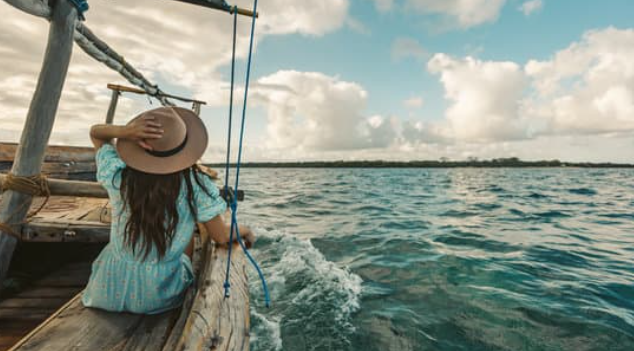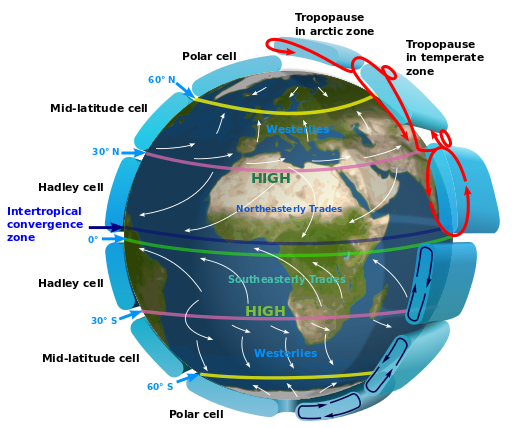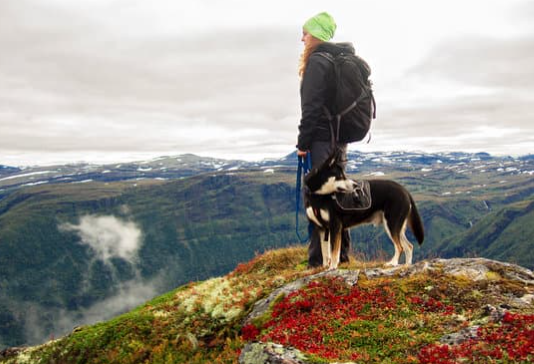“Ahoy Mateys! How to Break Free of the Winter Doldrums”

Ahoy Mateys!
How to Break Free of the Winter Doldrums
and Get Your “Ship” Sailing Again
By: Samantha Edwards, MA, LPC
Ah, January… A time where many people cyclically set goals or resolutions to shift habits and prioritize healthful behaviors. Despite even our noblest of intentions, there’s a reason that the second Friday in January is anecdotally coined “Quitter’s Day”, signifying a widespread societal lessening (or even complete abandonment) of enthusiasm to follow-through on one’s new year goals.
In this article, you will not find “10 easy steps” to hang on past Quitter’s Day. Instead, I want to explore the internal phenomenon that occurs for me each January, after the busy holidays of December and early January have subsided. This phenomenon entails my annual desire to hibernate (like an actual bear), to stay in bed as long as I can, to do my best with my Light Box buddy, and to white-knuckle it til spring.
Does this experience resonate with you in any way?
This year, I found new metaphor for helping us understand why the Winter Doldrums are so predictable and difficult to navigate, but not impossible to weather!
What is a doldrum?
A doldrum, emotionally or mentally speaking, is a state of feeling listless, despondent, low in spirits, depressed, gloomy, or melancholy.
However, the term has nautical origins in its literal sense. The “doldrums” refers to a band of low atmospheric pressure near the equator known for thunderstorms, squalls, calm waters and low or light winds. Specifically, the geographical zone is called the “Intertropical Convergence Zone” – ITCZ – (which is pronounced and often referred to as “the Itch”).

I find it interesting that, at first glance, “calm waters and light winds” near the equator sound rather nice! ….Warm… peaceful… very “cozy” for my cute little metaphorical sailboat who has been through so many “choppy waters” amidst the holiday season. In a way, the ITCZ sounds like a nautical state of hibernation. And perhaps that stillness could be welcome for a short time…
But, ships aren’t bears.
Ships do not hibernate, nor are they meant to stay still indefinitely.
When “stillness” turns to “stuck”
A 1834 poem called “The Rime of the Ancient Mariner” describes ‘the Itch’,
Day after day, day after day,
We stuck, nor breath nor motion;
As idle as a painted ship
Upon a painted ocean.”
-Samuel Taylor Coleridge
If we were to modernize the language and expand a first-person narrative of a sailor stuck in “the Itch”, perhaps their account might sound like this:
“We were trapped in the doldrums for nearly a week, the ocean like a mirror with only the occasional heavy rain squall breaking the monotony. The air was thick and heavy, and we could feel the frustration growing among the crew as the ship just sat there, unable to move. The only relief came from the brief bursts of wind that would suddenly appear, only to disappear just as quickly, leaving us feeling even more helpless.”
So at its best, a doldrum could cause sailors a few frustrating days of direction-less stagnation; but at its worst, it could lead to health crises like scurvy if/when resources for the crew ran out.
Modernly, a common maritime strategy for safer, more successful voyages involves minimizing time spent in the ITCZ and crossing it as quickly as possible. Ocean navigators have various ways of accomplishing this, but suffice it to say it requires research, planning, and tracking weather conditions regularly in order to pivot or change course mid-voyage if necessary.
You are the Ship, Captain, and its Crew!
Let’s back out of the literal doldrums for a moment to glean some application.
If you’re like me, you likely have at least some semblance of “weather patterns” (both literal and metaphorical) for how Winter feels for you after the holidays are over. That actually give some helpful predictability to you and your “ship”!

Using personal reflection about how Winters have felt for you over the past 1-3 years can be a great place to start. It’s like checking the forecast for your Winter 2025 Self by using your Internal Doplar Radar.
But don’t worry if you can’t recall this perfectly!
I’ll guide you through taking a brief inventory of how you typically feel this time of year:
(Pro Tip: Try to not judge yourself here, just answer the questions as matter-of-factly as possible)

- Physically – Do you tend to get sick often in the winter? What are your waking/sleeping patterns? How much time do you tend to spend outdoors (in natural sunlight)? How much time in one day are you physically moving your body in some way (out of a seated posture)?

- Emotionally / Mentally – Do you struggle more with low motivation, fatigue, irritability, depressed mood, sadness, or increased dependence on substances?

-
- Socially – How often are you connecting with friends, family, co-workers on a daily basis (ex. In-person, via phonecall, texting)? What is your average daily screentime amount on your phone, particularly for social media apps? Do you notice a draw to be more or less social in the winter, compared to your ‘norm’ or baseline in other seasons of the year?
I’d also encourage you to ask a partner or a trusted friend or family member to help you map out your answers to the above questions, because getting perspective from someone outside of your own ‘ship’ can help fill in gaps, reveal blind spots, and chart future waters more accurately.
Shifting your Atmospheric Pressure
Like sailors, we can’t change the physical weather offered to us each winter. But mapping out our more vulnerable spots can help us pivot in real-time and get our ship moving through the Winter Doldrums with greater safety and sanity.
Since the literal doldrums are places of low atmospheric pressure, let’s talk through ways to promote movement, prevent stagnation, and keep our own atmospheric pressure more conducive to ‘sailing’.
Inertia is so important in navigating the Winter Doldrums, and it’s how you can help your ship to not get caught in the windless squall of Quitter’s Day. Objects in motion stay in motion, and objects at rest stay at rest – right? It’s science.
So, does this mean that you have to be in a constant state of motion without rest or reprieve from January thru April?
No! But it does suggest that with some pre-planned, realistic, regular activity, your ship can reach Spring without the danger of scurvy!
Feel free to call such pre-planned, realistic, regular activities whatever term or phrase suits you best – ex. “Goals”, “Habits”, “Fun’tivities”, “Exercise”, “Rowing your Boat”, “Sailing”, etc.
Since I am a play therapist and play is my second language, this winter I’ll be playing “Fun’tivity Bingo” for me/my ship. (Sites like this provide a free customizable bingo card generator!)

Each week or so, I’ll update the board and set out to “get a bingo” in at least one direction by attempting to complete at least one Fun’tivity square per day. I’ve decided to be realistic and kind to myself by not expecting perfection or completion in every single activity.
If I complete a square, great!
If not, I’ll celebrate the win that I changed my Atmospheric Pressure, reversed my inactive inertia, and at least made the attempt.
Will there be storms and days when I want to let inactive inertia win?
Yes, absolutely. This is the realistic beauty of being a person.
Someone once said “You miss 100% of the shots you don’t take”.
Or in my case, “[A woman in the winter doldrums] will miss 100% of the [attempts to shift her atmospheric pressure] that she doesn’t take.”
Get Sailing
To help you take practical steps and get out of “the Itch” of the Winter Doldrums more quickly, below is a menu of movement opportunities for you and your ship.
I’m aware that I enjoy trying things I’ve never done before – novelty motivates my brain. So, my Bingo Cards will skew more in that direction. But be encouraged to set yourself up for success and tailor your approach to include things you’re aware may help and inspire you (and Future You) to get a’moving.



Creative:
- Photography: Capture moments and beauty around you, or print family photos to decorate your home
- Gardening: Grow your own food or flowers, or explore floral arrangement as a hobby or artform
- Baking/Cooking: Experiment with new recipes and flavors. Make a ‘sourdough baby’!
- Dancing: Explore different styles like hip hop, ballroom, or swing, recreationally or in a group class
- Painting/Drawing: Try a new artform, visit a pottery studio, or watch free visual art tutorials on the web
- Crafting: Try activities like knitting, crocheting, jewelry making
- Writing: Write fiction, poetry, or journaling
*Fan Favorite: Wreck this Journal series
Active:
- Walking/Running/Jogging/Hiking: Outdoor activity will get you that Vitamin D that’s so crucial in the winter, and feel-good endorphins from the exercise
*Fan Favorites: Medford hiking and biking offerings; Evesham Township Winter Recreation Programs
- Find a furry friend: Volunteer at a local animal shelter (ex. Animal Welfare Association, Friends of the Burlington County Animal Shelter, foster a pet, or visit a wildlife preserve
*Fan Favorites: Woodford Cedar Run Wildlife Refuge; Lakota Wolf Preserve; and Howling Woods Farm
- Playing sports: Think indoor tennis or pickleball, ice skating, rollerblading, rock climbing, bowling, or parcour – join a team or play recreationally
- Yoga, Meditation, or Martial Arts
Mind-stimulating:
- Learning a musical instrument: Play piano, guitar, drums, or try an online self-paced singing course
- Reading: Explore different genres and authors, or listen to an audiobook or podcast while walking outdoors
- Learning a new skills: Membership sites like MasterClass and Skillshare are a great place to look, or even old-fashioned YouTube
- Language: Try out a new language using Apps like DuoLingo, Babbel, Rosetta Stone, or sign up for a class at a local community college
Social:
- Volunteering: Connect with friends you haven’t met yet and feel good about giving back
*Fan Favorites: Search your local township (Burlington, Camden, etc.) or school district websites for volunteer opportunities, or check out VolunteerMatch and filter by your zipcode
- Joining a club: Find people with similar passions using Facebook Interest Groups and filter by your zipcode to search locally
- Board games: Pick an old favorite, finally learn how to play chess, or discover a new game in this new year
- Puzzles: Work on a jigsaw puzzle with a friend, or challenge yourselves to an Escape Room!



Reinforce the Boat
Lastly and most importantly, if your experience of the Winter Doldrums feels more severe in terms of emotional or mental health, it’s so important to not sail alone! Seasonal symptoms like depression tend to worsen in isolation, and are very treatable.
If you or a loved one is struggling, please contact us using the button below – we are here for you this winter, and year-round, to reinforce and resource you and your ship.
Happy Sailing!


References
American Geophysical Union. (2024, November 7). New research sinks an old theory for the doldrums, a low-wind equatorial region that stranded sailors for centuries. AGU Newsroom. https://news.agu.org/press-release/new-explanation-doldrums-slow-wind/
Chubb, H., & Iwegbue, A. (2024, July 19). 40 new hobbies to try 2024 — hobbies for adults. 40 New Hobbies to Try ASAP If You Need a Lil Change in Your Life. https://www.cosmopolitan.com/lifestyle/a32851180/lifestyle-hobbies-for-adults-ideas/
Friedhoff, J. (2024, July 23). How to find hobbies as an adult (and actually make time for them). The Everygirl. https://theeverygirl.com/how-to-find-hobbies-as-an-adult/
Leonard, E. M. (Ed.). (2023, June 10). Crossing the doldrums – ocean navigator. Ocean Navigator – The Voyager’s Resource. https://oceannavigator.com/crossing-the-doldrums/
National Oceanic and Atmospheric Administration (NOAA). (2016, July 15). What are the doldrums?. NOAA’s National Ocean Service. https://oceanservice.noaa.gov/facts/doldrums.html